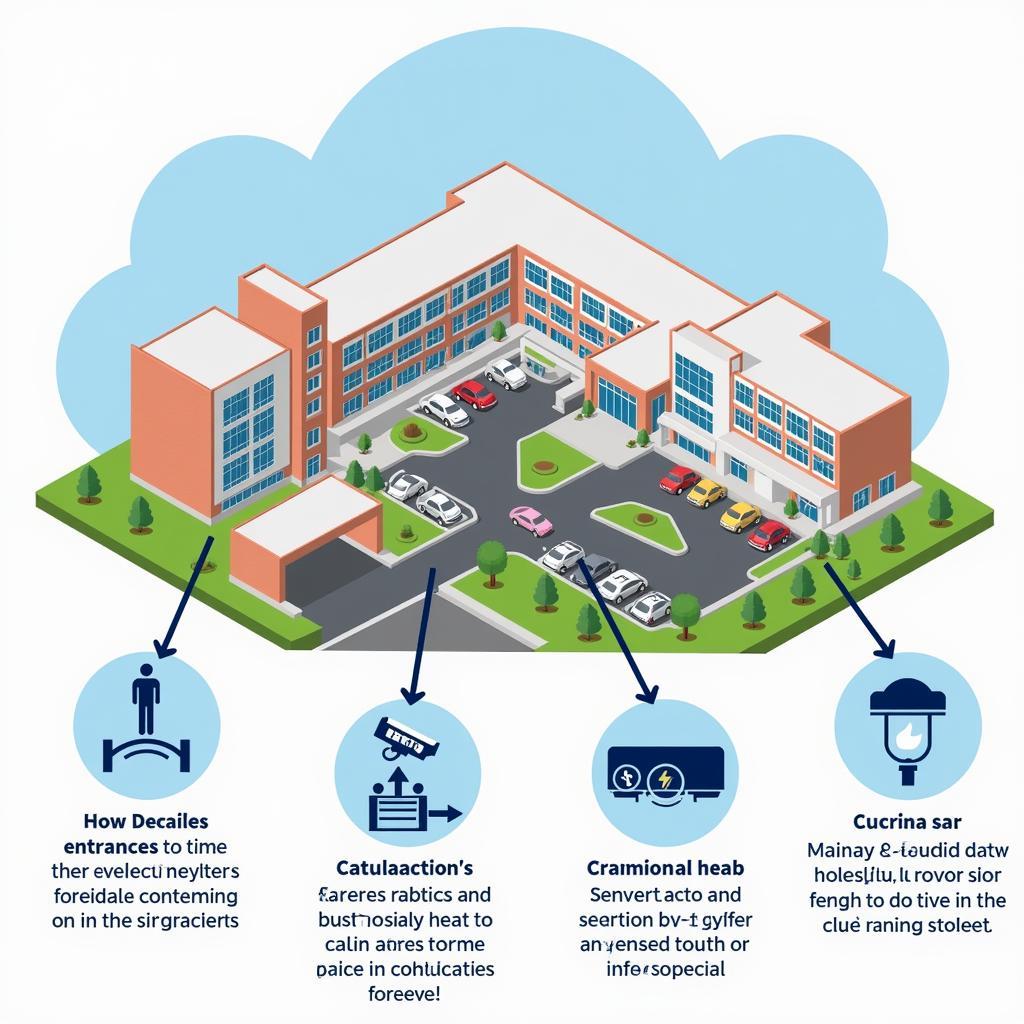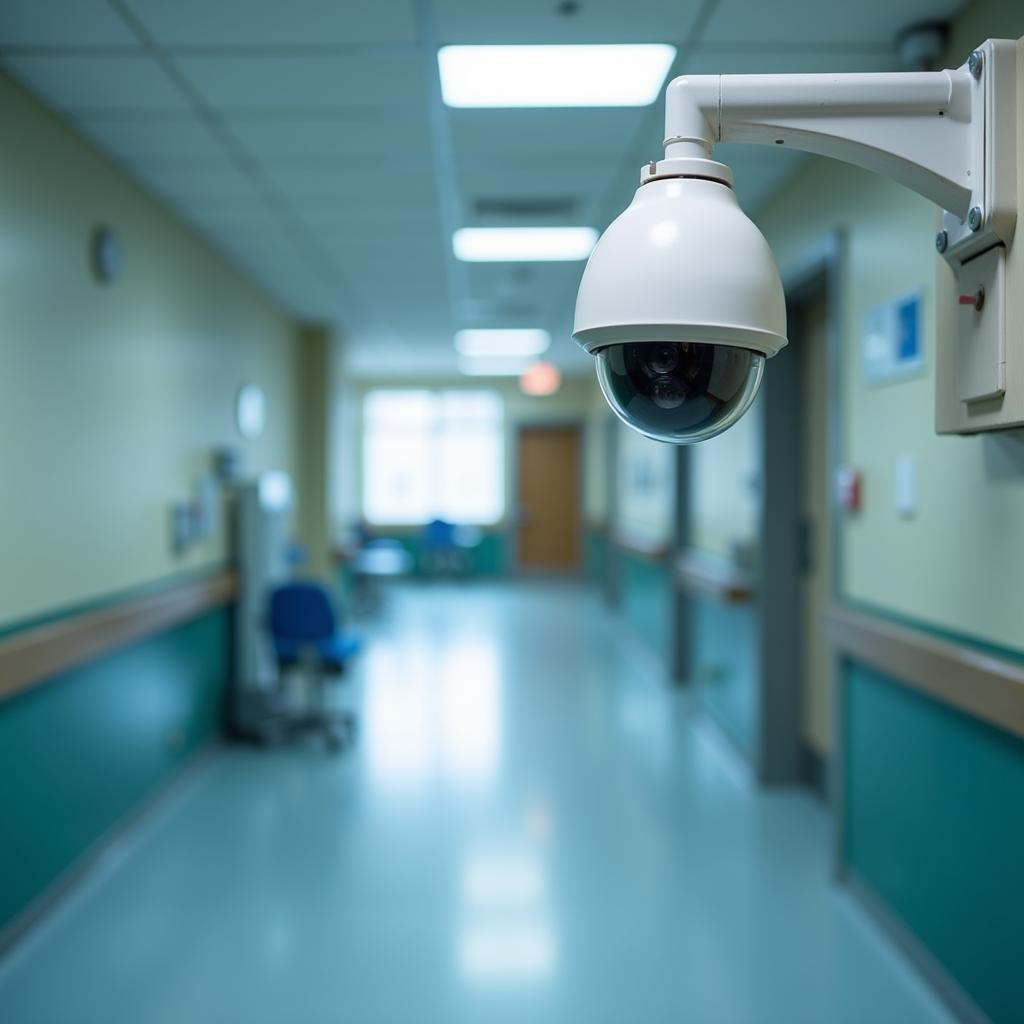Do Hospitals Have Cameras? It’s a question many patients and visitors ponder, often balancing concerns about security with desires for privacy. This article explores the prevalence of cameras in hospitals, addressing common questions and concerns surrounding their use. We’ll delve into the reasons behind hospital surveillance, the typical locations of cameras, and the legal and ethical considerations involved. Learn more about cameras in hospital rooms with this insightful guide.
The Rationale Behind Hospital Surveillance
Hospitals, like many other public spaces, utilize camera systems for several key reasons, primarily focusing on safety and security. These systems act as a deterrent against theft, vandalism, and violence, contributing to a safer environment for patients, staff, and visitors. Cameras also play a crucial role in monitoring access to restricted areas, ensuring the safety of sensitive equipment and medications. Furthermore, recorded footage can provide valuable evidence in investigations of incidents or accidents, helping to determine liability and improve future safety protocols. This information is especially pertinent during Hospital Security Week, which highlights the importance of these measures.
You can find more information about the presence of cameras in patient rooms here: cameras in hospital rooms.
Beyond security, cameras can also assist in monitoring patient well-being, especially in areas like intensive care units or psychiatric wards. They can help staff quickly respond to emergencies and provide a record of patient activity, which can be valuable for medical assessments. However, the use of cameras in patient care areas raises important privacy concerns that must be carefully addressed.
Where Are Cameras Typically Located in Hospitals?
Cameras are strategically placed throughout hospitals to maximize their effectiveness in enhancing security and patient safety. Common locations include:
- Entrances and Exits: Monitoring who enters and leaves the facility helps prevent unauthorized access and track potential security threats.
- Hallways and Common Areas: These cameras provide general surveillance and can deter unwanted behavior.
- Parking Lots and Garages: Surveillance in these areas helps protect vehicles and deter car theft or vandalism.
- Pharmacies and Supply Rooms: These locations often contain controlled substances and valuable equipment, requiring close monitoring to prevent theft or misuse.
- Emergency Rooms and Intensive Care Units: Cameras in these areas can assist in monitoring patient activity and responding to emergencies quickly. Learn more by reading this related article: is there cameras in hospital rooms.
 Hospital Security Camera Locations: Entrances, Hallways, Parking Lots, Pharmacies
Hospital Security Camera Locations: Entrances, Hallways, Parking Lots, Pharmacies
It’s important to note that cameras are generally not placed in areas where patients have a reasonable expectation of privacy, such as restrooms, changing rooms, or inside patient rooms (except in specific circumstances, often with patient consent and for medical reasons). The use of cameras is subject to strict regulations to protect patient privacy and confidentiality. For further details on policies regarding personal devices in healthcare facilities, see are phones allowed in mental hospitals.
Legal and Ethical Considerations
The use of cameras in hospitals is governed by strict legal and ethical guidelines to protect patient privacy. Hospitals must comply with HIPAA (Health Insurance Portability and Accountability Act) regulations in the United States, which protect the privacy of patient health information. Similar regulations exist in other countries.
Transparency is crucial. Hospitals are typically required to inform patients and visitors about the presence of cameras through signage or other means. Clear policies regarding the use, storage, and access to recorded footage must be in place. Furthermore, ethical considerations dictate that camera surveillance should be proportionate to the security needs and should not unduly infringe on individual privacy rights.
 Balancing Privacy and Security with Hospital Cameras
Balancing Privacy and Security with Hospital Cameras
“Balancing security with patient privacy is paramount,” says Dr. Emily Carter, Chief of Security at San Jose Hospital. “Our camera systems are strategically placed to prioritize safety while respecting patient confidentiality.”
Do They Have Cameras in Hospital Rooms? Addressing Common Concerns
The question, “Do they have cameras in hospital rooms?” is often rooted in concerns about privacy. Generally, cameras are not placed inside patient rooms except under specific circumstances, such as monitoring patients at high risk of self-harm or for medical observation with informed consent. This topic is covered more extensively in our article: do they have cameras in hospital rooms.
Conclusion
Do hospitals have cameras? Yes, they often do, primarily to enhance security, protect patients and staff, and deter criminal activity. While the presence of cameras can raise privacy concerns, hospitals must adhere to strict regulations and ethical guidelines to ensure patient confidentiality. Understanding the reasons for hospital surveillance and the locations where cameras are typically placed can help alleviate anxieties and foster a sense of security for everyone within the hospital environment.
FAQ
- Are cameras allowed in hospital rooms? Generally, no, except under specific circumstances and with patient consent.
- Why do hospitals have cameras? Primarily for security, safety, and monitoring purposes.
- Where are cameras located in hospitals? Entrances, exits, hallways, parking lots, and other public areas.
- Are hospital camera recordings confidential? Yes, they are subject to strict privacy regulations.
- Can I request to see camera footage from a hospital? This depends on hospital policy and legal regulations.
- Are there cameras in bathrooms or changing rooms? No, these are considered private areas.
- How can I learn more about hospital security practices? Contact the hospital’s security department.
For any assistance or further inquiries, please contact us at Phone Number: 02437655121, Email: [email protected] Or visit us at: No. 298 Cau Dien Street, Minh Khai, Bac Tu Liem, Hanoi, Vietnam. We have a 24/7 customer service team.